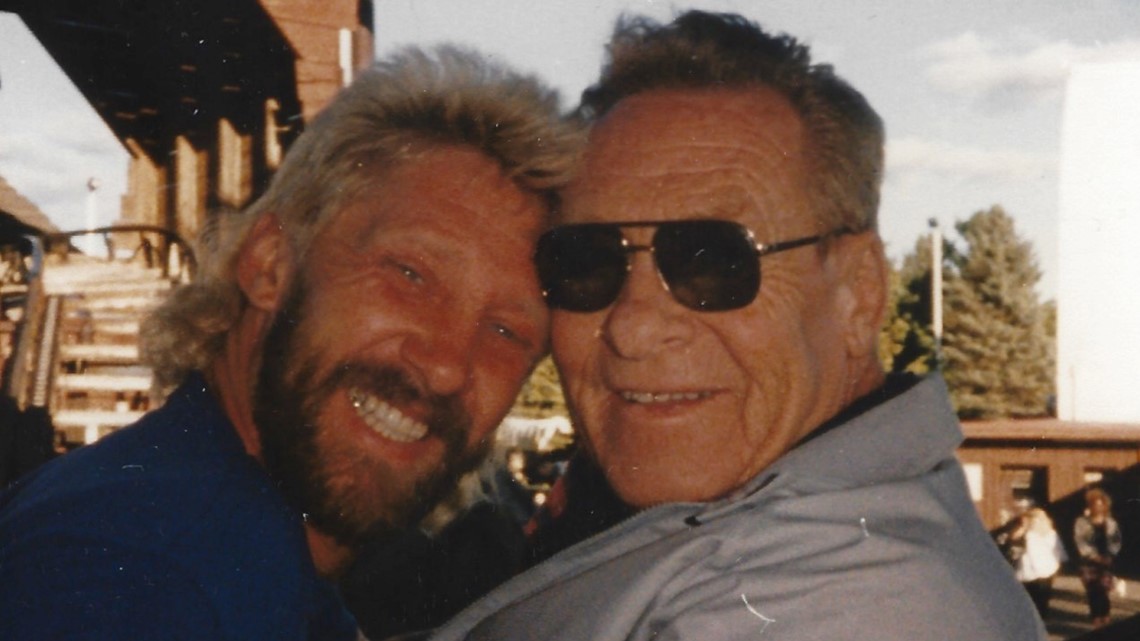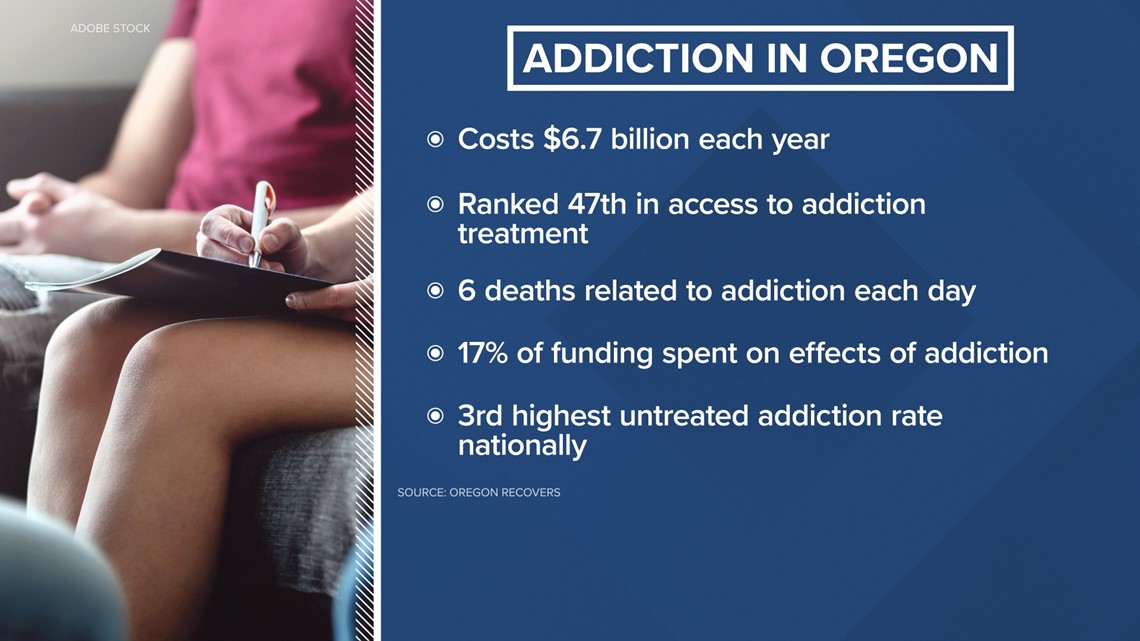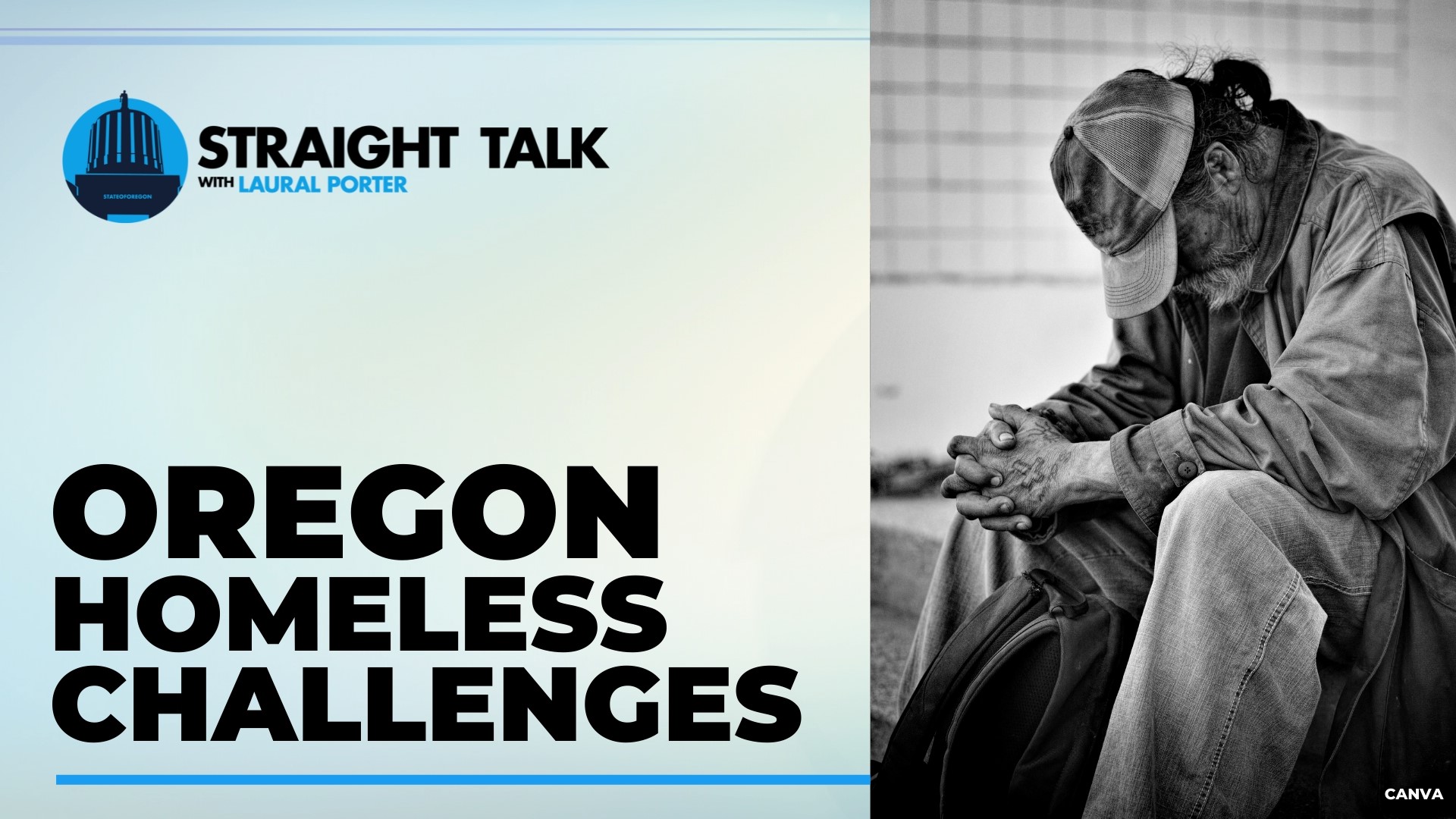PORTLAND, Ore. — On what would have been his brother Tim's 68th birthday, Portland City Commissioner Dan Ryan remembered how Tim struggled with mental health and substance abuse addiction. Tim died on the streets six years ago.
Ryan is leading the effort to find sites to build six city-sanctioned outdoor homeless shelters called "Safe Rest Villages." He's convinced they would have made a difference in his brother's life.
"Being in a village environment with other people that he could form community with, having access to the behavioral and mental health professionals that are coming to the village would have given him a lot of hope and our family would have really been supportive of that," Ryan said.


Behavioral health support services key part of Safe Rest Villages
Compassionate 24-7 wrap around behavioral health services are a key part of Ryan's vision for the Safe Rest Villages. Behavioral health experts say supportive services makes successful transition into permanent housing much more likely. However, providing those services may prove challenging with staffing shortages and a lack of treatment centers.
Commissioner Ryan joined "Oregon Recovers" co-founder and director, Mike Marshall, and Oregon State Representative Tawna Sanchez (D- District 43) on this week's episode of "Straight Talk" to discuss behavioral health and homelessness in Oregon.
"Oregon needs a recovery czar"
Marshall is 13 years in recovery from alcohol and meth. He is also the co-founder and director of the statewide coalition, Oregon Recovers. According to "Oregon Recovers," the state ranks 47th in the nation when it comes to access to addiction treatment.
At the same time, some of the existing treatment centers have closed, such as the sobering station that was operated by Central City Concern (CCC) for 30 years. The station in Northeast Portland provided an alternative place for people to sober up instead of being taken to jail. CCC told KGW it was a tough decision to close earlier this year, but staff members were increasingly seeing people who presented a risk of violence to themselves and others, so they had safety concerns.


Marshall believes the state needs bolder leadership when it comes to coordinating addiction and recovery services to provide more treatment options.
"There is no good dialogue going on that I know of to come up with an evidence based response to that. And it's a reflection...that we don't have a statewide coordinated effort and we don't have someone in charge. Governor Brown needs to appoint a recovery czar. The next governor needs to appoint a recovery czar," he said.
The holidays are often a time when people look for help. For those looking for recovery services or want to talk with a peer mentor they should visit www.OregonRecoveryNetwork.org.
Behavioral health workforce shortage
Another challenge is recruiting and retaining qualified behavioral health care workers. Commissioner Ryan said the problem has only gotten worse during the pandemic.
"We have a workforce challenge," he said. We don't really incentivize the people who do this work enough, many of them are on the verge of being houseless," Ryan said.
The city and county increased investments in staffing during the fall budget adjustment but Ryan said more needs to be done to recruit behavioral staff, including who they look to hire.
"I also think we have to get creative and innovative in who is doing the work. We know people who have lived experience who are in recovery offer some of the best skill sets. You can't have enough MSWs [Masters of Social Work] to fill the void," Ryan said.
Oregon Lawmakers passed a groundbreaking, nearly 500 million dollar, behavioral health package in the last legislative session. One of those bills includes $80 million to create incentive programs to increase the capacity and diversity of Oregon's behavioral health workforce. Rep. Tawna Sanchez is the chair of the behavioral health committee.
She said it takes times for that money to work through the system and they aren't seeing that funding result in an expanded workforce yet. However, she said lawmakers are working on other avenues to incentivize the current workforce to stay and not go to higher paying jobs.
"It's a longer process. It does take time to get these things moving, unfortunately. We are trying," she said.
She agreed with Mike Marshall, something has to be done to make these critical but stressful jobs more attractive.
"We are not paying people enough to do these really, really hard stressful jobs. And those are the people with MSWs and some of them without. Some of those peer support folks we are not paying them enough to really live," she said.
Commissioner Ryan responds to "People for Portland" complaints
Commissioner Ryan also responded to the nonprofit "People for Portland's" complaint that city and county leaders aren't doing enough fast enough to get people experiencing homelessness off the streets. The group says elected officials aren't doing enough to address community safety.
Ryan said the city is "on it." He cited the effort to open Safe Rest Villages and the funding of body worn cameras for Portland Police.
"It's pretty obvious there was a voice that needed to be heard and they tuned into it. I just hope they make a pivot soon," he said.
"Straight Talk" airs Friday at 7 p.m., Saturday at 6:30 p.m., and Sunday at 9:30 p.m.
"Straight Talk" is also available as a podcast.

